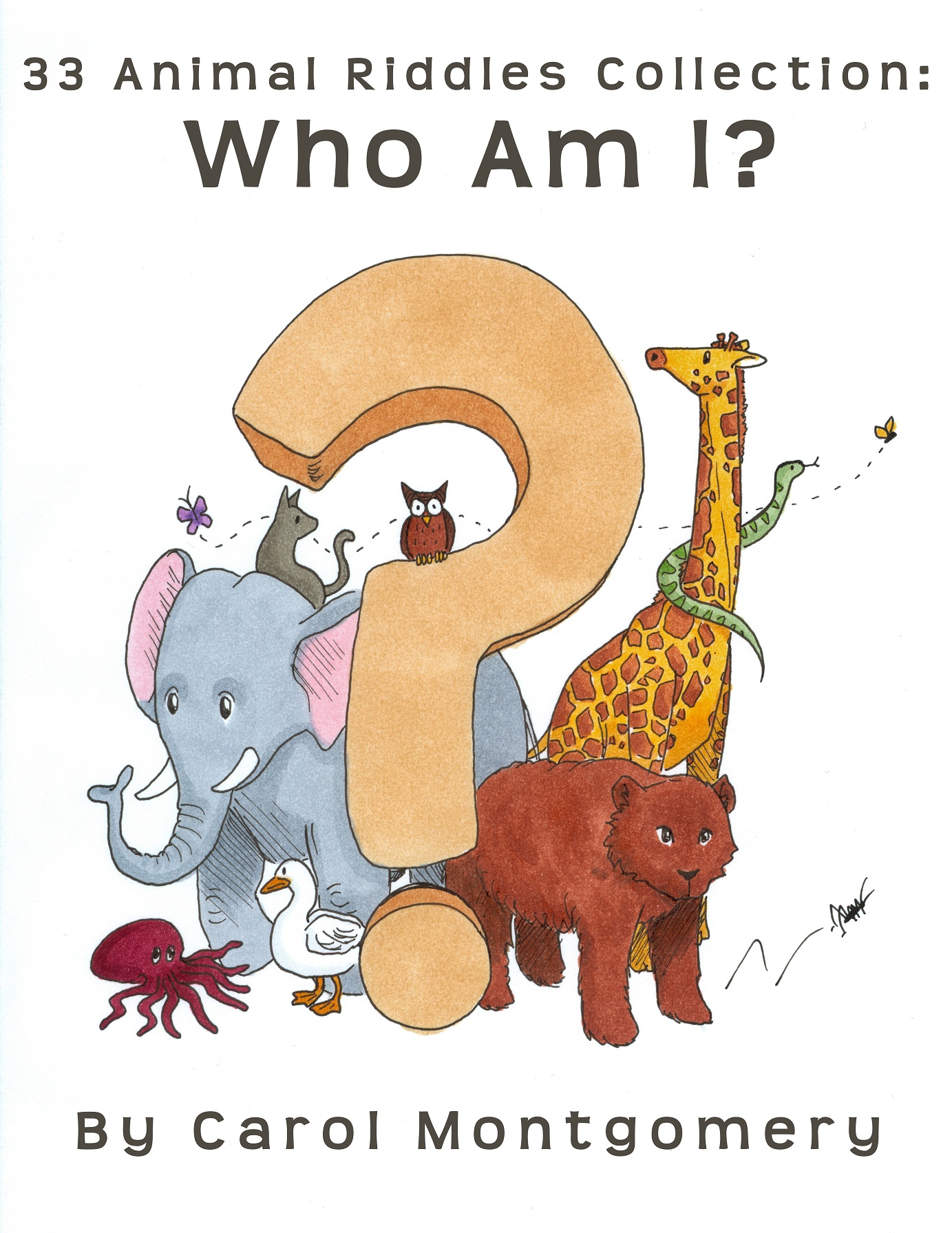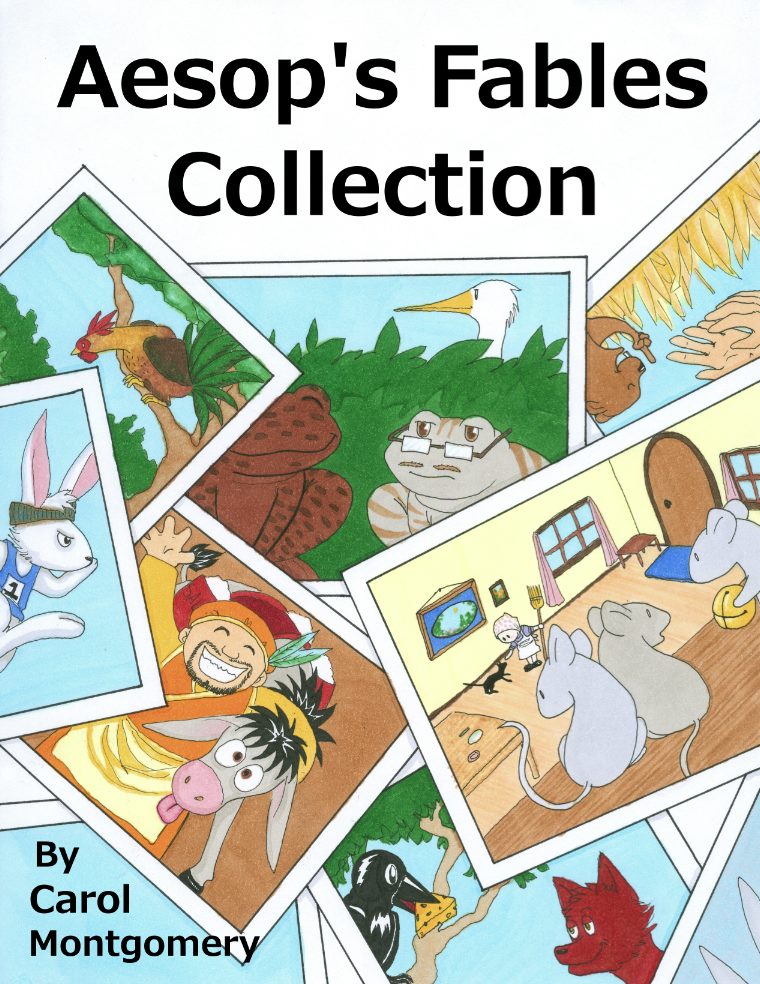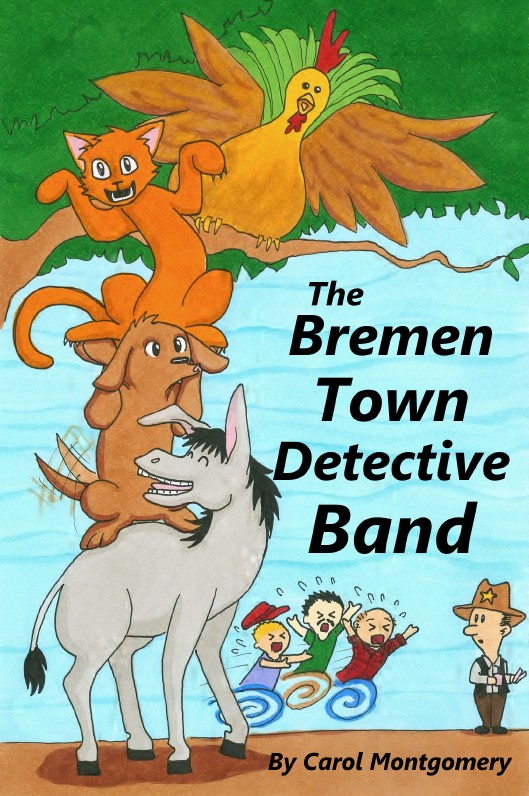 A teacher wrote me recently and shared, "I must convert my classes to an online format." Fortunately, she had already been using Readers Theater since the beginning of the year, so her students were already familiar with it. In fact, they had produced their own radio show by recording their script performances. I'm sure they loved it. Who wouldn't?
A teacher wrote me recently and shared, "I must convert my classes to an online format." Fortunately, she had already been using Readers Theater since the beginning of the year, so her students were already familiar with it. In fact, they had produced their own radio show by recording their script performances. I'm sure they loved it. Who wouldn't?
Several days before the teacher wrote me I made a list of ways that Readers Theater could be enjoyed as part of eLearning at home and online. So, I grabbed my notes and wrote her back. The list below includes most of the eLearning ideas I shared with her and a little more. (NOTE: If you or your students' parents want more information on homeschooling with Readers Theater check our growing "Homeschool with Readers Theater" section of this website.)
Introducing Readers Theater
1. (Optional) Introduce Readers Theater to your students via an engaging video of The Chamber Readers' performance of "The Legend of Lightning Larry" by Aaron Shepard (8 min.). Mention that The Chamber Readers have practiced a lot and are doing a fancy version of Readers Theater using gestures and special stage movements. This fancy version of Readers Theater is called Chamber Theater. (NOTE: Aaron Shepard generously shares "The Legend of Lightning Larry" script on the Readers Theater part of his website.)
2. Select a non-fiction script to be a "hook" for a unit study in history, health, science, or nature study for cross-curricular learning. We have several non-fiction scripts available, but there are more online. Use the ideas below to present the script or expand the lesson. Use some of our annotated curriculum links at the end of each script to supplement the learning.
3. Select a script to incorporate in a specific unit study (e.g., sled dogs). Many teachers successfully use our non-fiction scripts with their students. Sled dogs are one popular example because Disney has a new movie out on Togo, a famous sled-dog. We have a whole series of scripts with different readability levels on Togo and The Great Race of Mercy. They can be found in our Script Buffet (for paying members) or in our Teachers Pay Teachers store.
4. Review the script and introduce more difficult vocabulary, if needed. Our scripts have vocabulary lists of the more difficult words before the Readers Theater script starts. Some teachers explain the meaning of new or difficult vocabulary words ahead of time, while other teachers go over vocabulary in context. For individualized learning students could choose a few words from the vocabulary list and try to locate them in context in the script.
Practicing Readers Theater
5. Choose a specific script (fiction or non-fiction) for students or the whole class. Or, give a list of scripts for students to choose from. Encourage students to read the script on tablets, computers, phones (or print the PDF out on paper) and practice with their families. (Some teachers have assigned Readers Theater practice as homework to read with families.)
6. Encourage students to practice reading their Readers Theater scripts aloud to an audience at home: younger siblings, stuffed animals, pets, or other family members. They could even practice in front of a mirror.
7. Do a virtual Choral Readers Theater with students reading aloud with you online via Facebook livestream or some other livestream option. Or, use a free conference call service and invite students or small groups of students to read together.
8. Consider using a live Skype call (or other service) to do Readers Theater with a small group of students–either all from your class or combining with another class in another school, state, or nation. Other teachers have enjoyed doing Skype Readers Theater, but typically I've read about full class participation.
9. Encourage students to practice "buddy-reading" a Readers Theater script with a classmate, a neighbor, or even Grandma (or another relative) on the phone. We got rave reviews from a homeschool family who did this years ago. Grandma lived in another state. Teacher Mom sent Grandma a copy of the script via email. Grandma read her part and the primary level grandkids read their parts on the phone. Everybody loved it and practiced the script on the phone several times changing parts.
10. Ask students to practice reading a script alone–solo. Have them try to change voices for different parts. The students can read all of the parts for an audio or video performance and potentially share it online in a safe space. Even knock knock jokes or riddles can work for this.
Writing Readers Theater
11. Suggest that students to create their own Readers Theater scripts from song lyrics or poems. All they need to do is to divide the parts up for 2-4+ readers. They may add a chorus for everyone to read at the same time. Students may perform their play or just write it out for others to perform.
12. Assign a particular script, have students practice reading it, and then ask them to change the ending. Ideally, they will write the new ending in script form. Perhaps they can share their new ending with other classmates?
13. Inspire students to write creative stories and adapt their stories to a script format. Students who are familiar with scripts may write their stories in a script format from the beginning. Or, have students adapt one part of their stories to a Readers Theater script format. Narration goes to 1-4 narrators and dialogue goes to the characters.
14. Choose a piece of fiction literature or section of literature for students to create their own Readers Theater scripts. Simple stories with two characters and a little narration makes it easy to adapt to Readers Theater (e.g., Frog and Toad, picture books). Narration goes to 1-4 narrators and dialogue to the characters.
15. Ask students to choose a non-fiction topic from a list that you give them (e.g., related to your unit study). Students research the topic or read materials that you give them on the topic. Then, they create their own entertaining script of two people discussing the topic. One character always asks the questions while the other character has the answers. What about a surprise ending?
16. ***BONUS Check out Mandy's Tips for Teachers blogpost "4 Tips for Digital Learning–Making the Transition into Digital Learning" if you need more help. Many years ago before Mandy was married she shared on her old blog about how much she enjoyed incorporating Readers Theater regularly into her classroom. I was greatly encouraged and learned some things because Mandy is very generous with her helpful tips. This blog post includes links to several short videos Mandy made to help you: "How to Create a Digital Learning Plan for Students," "How to Customize Your Student Learning Plan," and "Using Google Forms to Communicate with Parents." Dr. Chase Young has several free Readers Theater scripts on his website The Best Class Class. (I haven't read all of these scripts, but I believe he used them with his primary level students.)
Of course, you may also check out our Free Scripts (55+), our Script Buffet Table (over 365 scripts for paying members), or our TpT Store for partner plays, small group scripts, and family friendly Readers Theater. (NOTE: We have a collection of Short Vowel Readers Theater partner plays and a separate collection of Long Vowel Readers Theater partner plays for beginning readers in our Teachers Pay Teachers store; however, the same scripts are also available in our Script Buffet for paying members. Our TpT store products often contain helpful graphic organizers, thinking questions, and extension activities not included in the Script Buffet.)
Simplifying Your Lesson Planning
Readers Theater integrates learning with most subjects, so if you think that you don't have time to include it in a reading block, overlap your Readers Theater scripts with science, history, health, or ____________. If you set up a weekly or bi-weekly schedule for Readers Theater your students will be begging for more.
Consider introducing a new script and vocabulary at the beginning of the week. Assign practice days in the middle of the week. (Students could read different parts during their practices.) Feature a performance or performances (e.g., video, audio, conference call) at the end of the week or whenever you think the students will be ready. Repeat the process with different scripts.
Since Readers Theater motivates learning while building lifelong skills your eLearning and home study students will have more fun while you get the job done. It's fairly easy, too. Why not enjoy the benefits of Readers Theater next week? I'm honored to help you.





 A teacher wrote me recently and shared, "I must convert my classes to an online format." Fortunately, she had already been using Readers Theater since the beginning of the year, so her students were already familiar with it. In fact, they had produced their own radio show by recording their script performances. I'm sure they loved it. Who wouldn't?
A teacher wrote me recently and shared, "I must convert my classes to an online format." Fortunately, she had already been using Readers Theater since the beginning of the year, so her students were already familiar with it. In fact, they had produced their own radio show by recording their script performances. I'm sure they loved it. Who wouldn't?



.jpg)

